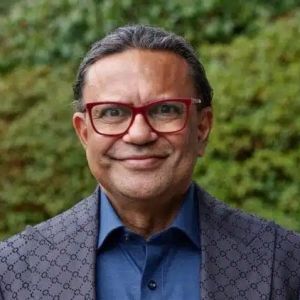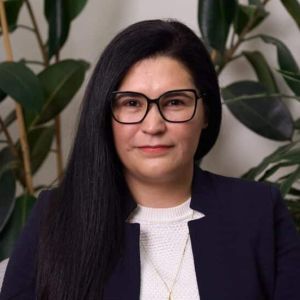






NEOVIVA
Verified Center
This provider's information has been quality-checked by Recovery.com's Research Team for accuracy and completeness, including center verification through appropriate third-party organizations.
Treatment Focus
This center treats substance use disorders and mental health conditions. You'll receive individualized care catered to your unique situation and diagnosis, learn practical skills for recovery, and make new connections in a restorative environment.
Primary Level of Care
Offering intensive care with 24/7 monitoring, residential treatment is typically 30 days and can cover multiple levels of care. Length can range from 14 to 90 days typically.
Treatment Focus
This center treats substance use disorders and mental health conditions. You'll receive individualized care catered to your unique situation and diagnosis, learn practical skills for recovery, and make new connections in a restorative environment.
Primary Level of Care
Offering intensive care with 24/7 monitoring, residential treatment is typically 30 days and can cover multiple levels of care. Length can range from 14 to 90 days typically.
Private Pay
You pay directly for treatment out of pocket. This approach can offer enhanced privacy and flexibility, without involving insurance. Exact costs vary based on program and length of stay. Contact the center for specific details.
NEOVIVA
NEOVIVA
About NEOVIVA
NEOVIVA is a sanctuary for personalised recovery, offering utmost discretion and a tailored path to well-being. With a maximum of 5 clients at a time, clients receive high-quality residential treatment for alcohol and drug addiction, behavioural addiction, and mental health disorders. Located in the enchanting area known as “The Riviera of Central Switzerland”, they provide everything clients need to find their way back to a healthier, happier life.
Rediscover a Vibrant Life through Advanced Treatment
At NEOVIVA, clients are guided beyond the initial addiction or mental health issues that brought them to treatment. Their therapy approach meets the deeper longing to feel truly understood, providing a safe space for clients to examine and embrace all parts of themselves. NEOVIVA’s programmes are carefully balanced to include evidence-based and advanced treatment methods, such as comprehensive medical testing, personalised psychotherapy sessions to address underlying issues, group sessions, and meaningful leisure activities. They also integrate noninvasive brain stimulation, body-centred practices such as yoga and mindfulness, and recovery coaching to promote holistic well-being and long-term success.
Experience a Well-Rounded Weekly Schedule
NEOVIVA’s multilingual team customises a weekly schedule that blends therapeutic modalities, psychiatric evaluations, and medical interventions. Each day begins with a healthy breakfast and somatic sessions, followed by a mix of therapies, repetitive transcranial magnetic stimulation (rTMS), and psychoeducational groups. Evenings may include fellowship meetings while weekends focus on outdoor activities and enjoying the serene Swiss scenery, with ample time for personal reflection and relaxation.
Recover in Lakeside Luxury
Uniquely located within an upscale hotel, NEOVIVA mirrors the everyday world to which clients will return, significantly enhancing the likelihood of lasting change. Each private lakeview ensuite room meets exceptional standards of comfort and relaxation. Most rooms come with a balcony with breathtaking views of Lake Lucerne. In addition to tea and coffee facilities, a non-alcoholic minibar, and air conditioning, some rooms also come with a private office. Nutrient-dense meals are enjoyed in the panoramic restaurant or on the terrace. To rejuvenate the body and soul, clients benefit from the hotel’s wellness park with a swimming pool, heated outdoor whirlpool, Finnish sauna, and bio sauna.
Integrate the “Paw-sitive” Energy of Pets
Spending time with animals can lower blood pressure, ease depression, reduce anxiety, and lessen stress. Animals’ non-judgmental companionship creates a strong bond that eases the journey and fills people with “paw-sitive” energy. Pet owners know it, science proves it, and at NEOVIVA, clients can benefit from it. Clients can incorporate animal-assisted therapy (AAT) into other evidence-based practices, or bring their own pet to NEOVIVA during treatment. Admissions staff are happy to consult with clients about having their pet accompany them, even across borders.
NEOVIVA provides treatment in many languages, including Japanese, Bengali, Russian, English, German, and Afrikaans.
Highlights from the Center
Highlights
These highlights are provided by and paid for by the center.
Therapeutic Location
Customized Treatment Plans
Perfect for UHNWI
Utmost Confidentiality
Center Overview
Treatment Focus
This center treats substance use disorders and mental health conditions. You'll receive individualized care catered to your unique situation and diagnosis, learn practical skills for recovery, and make new connections in a restorative environment.
Pricing and Program Length
Estimated Center Costs
The cost listed here (CHF 35'350 per week (Signature Programme)), is an estimate of program cost. Center price can vary based on program and length of stay. Contact the center for more information. Recovery.com strives for price transparency so you can make an informed decision.
Luxury rehab centers offer a unique blend of luxurious amenities and high-quality treatment. From private suites to gourmet dining, personal trainers to spa treatments, these facilities provide a high level of comfort and discretion.

Meet Your Care Team

Fenina Erpf
CEO
MSc in Psychology

Oliver Neubert
Founder & Chairman
MSc in Addiction Studies

Dr. med. Andrei Khomenko
Medical Director
Specialist Psychiatry & Psychotherapy, and Neurology

Dr. med. Andrea Dzaja
Medical Director

Dr. phil. Mayte Parada
Clinical Lead
Registered Psychotherapist, Couple & Family Therapist

Shelley Heusser
Psychotherapist
MSc in Clinical Psychology

Dr. phil. Mohammed Shafiullah
Clinical Psychologist
PhD in Psychology

Jason Milne
Head Recovery Counsellor
MA in Education

Adelina Guerrero
Recovery Counsellor
BA Social Anthropology

Ian Taylor
Recovery Counsellor
MSc in Psychology

Hugrún Kristjánsdóttir
Recovery Counsellor

Arinder Sadhra
Recovery Counsellor

Anthony Cummins
Recovery Counsellor

Michael John
Recovery Counsellor

Sarah McGoldrick
Recovery Counsellor

Crystal Guler
Client Relations Manager

Eugenia Kozi
Client Relations
MSc in Media & Communication

Bentley
Chief Happiness Officer

Blue
Chief Zen Officer

Julie & Janusch & Lorenzo
Chief Comfort Officers




Levels of Care








Your Care Options
Specializations
1-on-1 Counseling
Patient and therapist meet 1-on-1 to work through difficult emotions and behavioral challenges in a personal, private setting.
Alcohol
Using alcohol as a coping mechanism, or drinking excessively throughout the week, signals an alcohol use disorder.
Cocaine
Cocaine is a stimulant with euphoric effects. Agitation, muscle ticks, psychosis, and heart issues are common symptoms of cocaine abuse.
Pet Friendly
For greater comfort and healing, pet-friendly treatment centers welcome dogs and animal companions to stay with their owners while they attend treatment.
Drug Addiction
Drug addiction is the excessive and repetitive use of substances, despite harmful consequences to a person's life, health, and relationships.
Executives
Executive treatment programs typically directly support the needs of people who manage businesses and may provide flexible schedules and office space to allow work during treatment.
Licensed Primary Mental Health
Some primary care providers offer mental health diagnosis and treatment. This can prevent patients from developing more serious conditions.
Opioids
Opioids produce pain-relief and euphoria, which can lead to addiction. This class of drugs includes prescribed medication and the illegal drug heroin.
Who We Treat
Executives
Executive treatment programs typically directly support the needs of people who manage businesses and may provide flexible schedules and office space to allow work during treatment.
LGBTQ+
Addiction and mental illnesses in the LGBTQ+ community must be treated with an affirming, safe, and relevant approach, which many centers provide.
Men and Women
Men and women attend treatment for addiction in a co-ed setting, going to therapy groups together to share experiences, struggles, and successes.
Professionals
Busy, high-ranking professionals get the personalized treatment they need with greater accommodations for work, privacy, and outside communication.
Approaches
Bio-Medical
A philosophy focusing on the biomechanics behind mental health disorders, using prescribed medications as a supplement to behavioral therapy.
Evidence-Based
A combination of scientifically rooted therapies and treatments make up evidence-based care, defined by their measured and proven results.
Individual Treatment
Individual care meets the needs of each patient, using personalized treatment to provide them the most relevant care and greatest chance of success.
Personalized Treatment
The specific needs, histories, and conditions of individual patients receive personalized, highly relevant care throughout their recovery journey.
Therapies
1-on-1 Counseling
Patient and therapist meet 1-on-1 to work through difficult emotions and behavioral challenges in a personal, private setting.
Meditation & Mindfulness
A practiced state of mind that brings patients to the present. It allows them to become fully aware of themselves, their feelings, and the present moment.
Trauma-Specific Therapy
This form of talk therapy addresses any childhood trauma at the root of a patient's current diagnosis.
Online Therapy
Patients can connect with a therapist via videochat, messaging, email, or phone. Remote therapy makes treatment more accessible.
Transcranial Magnetic Stimulation
Localized magnetic pulses stimulate areas of the brain to increase brain activity and reduce abnormal functions.
Mindfulness Therapy
This ancient practice can be mental, emotional, and even spiritual. In meditation, you focus your attention on the present moment without judgement.
Adventure Therapy
This experiential approach uses the physical and emotional challenges of outdoor activities as tools for personal growth.
Conditions We Treat
Pornography Addiction
A person with a porn addiction is emotionally dependent on pornography to the point that it interferes with their daily life and relationships.
Anger
Although anger itself isn't a disorder, it can get out of hand. If this feeling interferes with your relationships and daily functioning, treatment can help.
Anxiety
Anxiety is a common mental health condition that can include excessive worry, panic attacks, physical tension, and increased blood pressure.
Burnout
Burnout entails mental and physical exhaustion, and leads to a severe lack of fulfillment. This condition is often caused by overwork.
Chronic Pain Management
Long-term physical pain can have an affect on mental health. Without support, it can also impact your daily life and even lead to addiction.
Codependency
Codependency is a pattern of emotional dependence and controlling behavior. It's most common among people with addicted loved ones.
Depression
Symptoms of depression may include fatigue, a sense of numbness, and loss of interest in activities. This condition can range from mild to severe.
Eating Disorders
An eating disorder is a long-term pattern of unhealthy behavior relating to food. Most people with eating disorders have a distorted self-image.
Gambling
Excessive, repetitive gambling causes financial and interpersonal problems. This addiction can interfere with work, friendships, and familial relationships.
Substances We Treat
Alcohol
Using alcohol as a coping mechanism, or drinking excessively throughout the week, signals an alcohol use disorder.
Benzodiazepines
Benzodiazepines are prescribed to treat anxiety and sleep issues. They are highly habit forming, and their abuse can cause mood changes and poor judgement.
Chronic Relapse
Consistent relapse occurs repeatedly, after partial recovery from addiction. This condition requires long-term treatment.
Co-Occurring Disorders
A person with multiple mental health diagnoses, such as addiction and depression, has co-occurring disorders also called dual diagnosis.
Cocaine
Cocaine is a stimulant with euphoric effects. Agitation, muscle ticks, psychosis, and heart issues are common symptoms of cocaine abuse.
Drug Addiction
Drug addiction is the excessive and repetitive use of substances, despite harmful consequences to a person's life, health, and relationships.
Ecstasy
Ecstasy is a stimulant that causes intense euphoria and heightened awareness. Abuse of this drug can trigger depression, insomnia, and memory problems.
Heroin
Heroin is a highly addictive and illegal opioid. It can cause insomnia, collapsed veins, heart issues, and additional mental health issues.
Languages
Aftercare
Care Designed for Your Needs
Personal Amenities
Amenities
Special Considerations
Center Pets
Addiction and mental health facilities with pets allow patients to interact with friendly dogs, cats, horses, and in some cases, even dolphins.
Clients can bring their own pet(s)
For greater comfort and healing, pet-friendly treatment centers welcome dogs and animal companions to stay with their owners while they attend treatment.
Pet Friendly
For greater comfort and healing, pet-friendly treatment centers welcome dogs and animal companions to stay with their owners while they attend treatment.
Activities
Yoga
Yoga is both a physical and spiritual practice. It includes a flow of movement, breathing techniques, and meditation.
What people are saying
Treatment
4.9
Accommodations
4.9
Food & Nutrition
4.6
Value
5.0
Pros
- Gourmet & Nutritious Food (2)
- Confidential (2)
- Supportive Aftercare (2)
- Treated With Respect (2)
George L
Treatment in 2024 • (45 days) • Reviewed 01/14/25
Former Client
•Switzerland
VS
Treatment in 2022 • (30 days) • Reviewed 05/14/24
Former Client
•Student
•Europe
Victor
Treatment in 2022 • (30 days) • Reviewed 05/15/24
Loved One of a Former Client
Anonymous
Treatment in 2023 • (30 days) • Reviewed 05/10/24
Loved One of a Former Client






